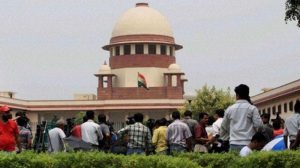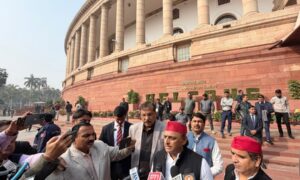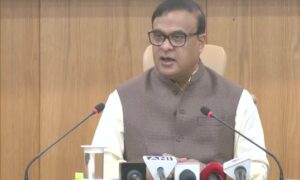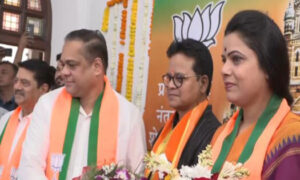
File Picture Courtesy: Deccan Chronicle
By Siddharth Rai
The Scheduled Castes and Tribes (Prevention of Atrocities) Act, 1989, or the SC/ST Act protects the Dalits against discrimination and atrocities.
On March 20, 2018, the Supreme Court expressed concern over misuse of the Act and ruled against the automatic arrest of the ‘accused’ under the law.
It also introduced the provision of anticipatory bail. The Supreme Court ruled that public servants cannot be prosecuted without the approval of the appointing authority and citizens too should be arrested only after an inquiry under the law.
This led to widespread protests in the form of Bharat Bandh across five states claiming 11 lives including 4 patients who died in the ambulance waiting for the protesters to free the roads for them to reach the hospital.
The central government filed the review petition in the matter. However, turning down the government’s appeal to freeze the earlier verdict, the top court said, our aim is to protect innocents, we have not diluted the law in any manner.
While the apex court also agreed to hear the review petition after 10 days there were several important points that were made in the judgment.
Here are a few points that the apex court expressed its concern while reviewing the petition by the central government.
The judgment is not in conflict with the SC/ST Act. It does not dilute the law in any way. We only flagged one issue – can the liberty of an innocent be taken away without application of mind? We only said protect an innocent from being falsely implicated under the Act, which has stringent provisions.
“Innocents cannot be terrorised by the provisions of the SC/ST Act and their fundamental rights need to be protected. We don’t want to deprive anyone of the right to life and we make ourselves very clear that we are not against the Act or the complainants,” a bench of justices Adarsh Kumar Goel and UU Lalit said during the hearing of the review petition.
People agitating may not have read the judgment. They may have been misled. The top court’s inference that those who have hit the streets unleashing violence and destroying private and public property might not have understood the import of the judgment could be valid as these protests appear to have been engineered largely by vested interests.
THE SC JUDGMENT AND ITS INFERENCE
Now let’s go and read the judgment in between the lines and have an overview of the fight for the fundamental rights in India.
The first and foremost point that the Supreme Court made is that the judgment is not affronted to the Dalit rights and is not in conflict with the SC/ST Act. But the judgment only protects the right of the innocent citizens. The decision only flagged one issue – can the liberty of an innocent be taken away without application of mind? SC only said to protect an innocent from being falsely implicated under the Act, which has stringent provisions. The fact that the SC/ST act is being misused against the citizens of this country is an understatement but it’s obvious from the verdict.
No less than the apex court of this country was compelled to state that the “innocents cannot be terrorised by the provisions of the SC/ST Act and their fundamental rights need to be protected.”
Use of the word “terrorised” clearly shows that the prescribed fundamental rights of the citizens of this country are being brazenly undermined under the shadow of this draconian law according to which only a statement by a person belonging to the Dalit community snatches all the fundamental rights of the “accused” and the person is arrested without any investigations into the matter. Adding to that, the arrest is non-bailable.
The third inference that the apex court made in its judgment is that the people agitating on the streets may not have understood the verdict. Well, a look at the agitators on the streets would itself let anyone know that they can barely be able to read the statement, let apart their understanding of the judgment.
The fourth and probably the most important statement made by the apex court is that the protests during Bharat Bandh appear to have been engineered largely by vested interests.
What can be these vested interests? These are purely political interests that the political parties and their leaders targeted through the mass damage of public property and the loss of 11 precious lives.
Primarily, the Bandh was called upon by Dalit groups headed by their leader Prakash Ambedkar who took responsibility of the Bandh on all TV channels brazenly and warned to hold the country on ransom if their demands are not met.
What were their demands, to abandon and abolish the fundamental rights of the citizens of this country on the complaint of a Dalit?
It is important to know that Prakash Ambedkar is the grandson of Baba Sahab Ambedkar and apart from this fact his contribution towards the development of his society is zero.
It is also shocking that he is standing against the Constitution of this country written by his grandfather Dr Ambedkar who prescribed fundamental rights for its citizens with a special mention that under no circumstances these rights can be abolished.
The other culprits of this menace were leaders of the opposition parties who have time and again proved themselves disaster for this country. Rahul Gandhi and the Congress, Left parties, Lalu Yadav and the RJD, Mamata Banerji and the TMC and Arvind Kejriwal and the AAP are only a few to name here who are poised to oppose PM Modi at any cost and at any level.
Moreover, there were 2 poll-bound states who took the maximum brunt of this Bharat Bandh, namely Madhya Pradesh and Rajasthan. Both BJP-ruled states incurred maximum deaths and large scale of losses to public property.
So, it is quite obvious that the motive behind this Bharat Bandh was uprooting the BJP governments in the two states and bringing an anti-Dalit image of PM Modi on the fore in the run-up for 2019 elections.
Also, leaders like Prakash Ambedkar, Rahul Gandhi and others can find an appropriate ground for their political goals, who have so far proved to be failures in the political arena of the Indian democratic political system.
A STEP FORWARD REQUIRED IN INDIA
It is commendable that the Supreme Court has refused to stay its order over the draconian SC/ST act in order to prevent the fundamental rights of citizens in India, but what more is required from the apex court is to fix the responsibility of this large-scale Bandh called by political parties and compensation for the lives lost during this Bharat Bandh.
The Supreme Court in its 1997 order prohibited any political party and group to call a Bandh and damage the public property. It also stated that if political parties resort to such tactics the judiciary would fix responsibility and ask them to compensate for the damages done to the public property.
In 2005, the Bombay HC ordered the Shiv Sena-BJP coalition to pay Rs 40 lakhs for their bandh called against the 2003 bomb blast. Citing an example of the case, the apex court must go on to announce the compensation for the damage of the public property caused during the Bharat Bandh from the groups which primarily called the Bandh and the political parties who openly expressed their support to it.
This is not all. The apex court must issue a warning to the political leaders for not holding the country on ransom for the next time and make sure that their respective parties are not indulged in such acts.
Failing to which, the consequences may include cancellation of their candidature in the upcoming elections and a repeat of the act leading to de-recognition of their party.
THE SC/ST ACT
The Scheduled Castes and Tribes (Prevention of Atrocities) Act, 1989, or the SC/ST Act protects the Dalits against discrimination and atrocities.
Here’s All You Need To Know About SC/ST Act:
- The Scheduled Castes and Tribes (Prevention of Atrocities) Act is popularly known as POA, the SC/ST Act, the Prevention of Atrocities Act, or simply the Atrocities Act. The SC/ST Act was enacted on September 9, 1989. The rules for the Act were notified on March 31, 1995.
- The SC/ST Act lists 22 offences relating to various patterns or behaviours inflicting criminal offences and breaking the self-respect and esteem of the scheduled castes and tribes community. This includes denial of economic, democratic and social rights, discrimination, exploitation, and abuse of the legal process.
- According to the SC/ST Act, the protection is provided from social disabilities such as denial of access to certain places and to use customary passage, personal atrocities like forceful drinking or eating of inedible food sexual exploitation, injury etc, atrocities affecting properties, malicious prosecution, political disabilities and economic exploitation.
- For the speedy trial, Section 14 of the SC/ST Act provides for a Court of Session to be a Special Court to try offences under this Act in each district.
- The prime objective of the SC/ST Act is to deliver justice to marginalised through proactive efforts, giving them a life of dignity, self-esteem and a life without fear, violence or suppression from the dominant castes.
Moreover, the Scheduled Castes (SCs) and the Scheduled Tribes (STs) Prevention of Atrocities (PoA) Act, 1989 was amended recently to include new offences and to ensure speedy justice to victims. The amended law had come into effect from January 26, 2016.
In a democratic system, no complainant can be prosecutor and judge of its own case, neither his special rights can be considered valid that abolishes the fundamental rights of its fellow citizens in the same country.
Now, the time has come that the Indian democracy behaves maturely and people do not fall prey to their political masters irrespective of the caste and the community they belong to. Let’s pledge to make India a great country that runs on the spirit of merits and not reservations.
Siddharth Rai is a journalist. This opinion piece was originally published on his blogroll. Views expressed here are personal.


















